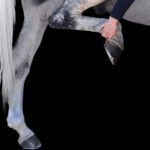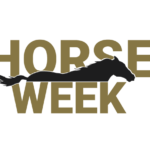September 6, 2002 — It seems as if the preparation and trials for the World Equestrian Games have been going on forever, but now we’re on the verge of arriving at the big moment.
The WEG begins in sunny Jerez de la Frontera, Spain with opening ceremonies on Tuesday, while the long-awaited competition gets under way the next morning. This promises to be the most lavish and exciting WEG ever, with extensive preparations by the organizers and contests in seven disciplines, instead of five or six, as reining makes its debut.
While ticket sales are a major goal for organizers and spectators want to be entertained, competitors go to the WEG for only one thing–medals. The U.S. Equestrian Team has been focusing on the WEG since the end of the Sydney Olympics two years ago.
For show jumping, dressage and eventing, the WEG–an aggregation of world championships–is second only to the Olympics in importance. But it’s the ultimate to the non-Olympic disciplines of reining, vaulting, four-in-hand driving and endurance.
American prospects have never looked brighter across the board for the WEG, a concept that premiered in 1990. Don’t, however, forget either the frailty of horses or that during competition, anything can happen–and often does.
Perhaps the most predictable of all the sports is dressage, since horses do the same tests they performed in the trials, which means you don’t have to figure in the variables of course design, as is the case in show jumping and eventing. And of course, there’s no danger factor in dressage as there is in the other two sports.
The U.S. has a real shot at the silver medal (it’s always assumed that Germany will get the gold, as it has with only one bobble since the inception of world championships in the sport 36 years ago.) The squad of Debbie McDonald (Brentina), Guenter Seidel (Nikolaus 7), Sue Blinks (Flim Flam) and Lisa Wilcox (Relevant) has been training and competing well in Europe, serving notice on opponents that they are very serious contenders.
In addition to the Germans, the Americans’ chief competition will be the Danes, whom they edged for the bronze at the 2000 Olympics; the Spanish, a real threat on their home turf, and the Dutch. Though not as strong as they were when Anky van Grunsven reigned with the now-retired Bonfire, the contingent from Holland cannot be disregarded.
It would, however, be a major upset if the U.S. dressage riders failed to come home with a medal. Note I said medal, singular. American riders may well place in the top six individually, but Germans Ulla Salzgeber (Rusty) and Nadine Capellman (Farbenfroh) should duke it out for the gold, while you might see a Dane (or perhaps a Spaniard) taking the bronze.
Although Germany is also favored for show jumping gold, those imposing riders proved to be fallible at the Samsung Nations’ Cup final in their homeland when they didn’t even finish the class.
You can bet they won’t make the same mistake twice and, led by world-ranked number one rider Ludger Beerbaum, they should still manage to win in Jerez. But they’ll have stiff competition from the Swiss, French and Belgians, probably the Swedes and possibly Italy, which made its biggest show jumping splash internationally in decades by winning the Samsung final. Ireland has not been able to recapture its form of 2000, when it had a real run in Nations’ Cup wins, so my best guess is that it won’t be a major factor unless Irish luck comes through in a big way.
Where does the U.S. figure in all of this? It’s the strongest show jumping team America has ever fielded for a WEG, the best since it took the gold in the 1986 World Championships, the last time the competition was held on a stand-alone basis.
Peter Wylde’s double-clear with Fein Cera in the Samsung signals that he could wind up in the “final four,” the line-up from which the medal winners are drawn. Nicky Shahinian-Simpson (El Campeon’s Cirka Z) was solid in the Cup finals, and Leslie Howard’s major problems there with Priobert de Kalvarie were taken by her as a wake-up call. She thinks it will be no problem to set her horse straight.
The substitution of alternate Beezie Madden for selection trials winner Molly Ashe gives the U.S. a stellar rider who is unflappable in competition. Sadly, Molly had to withdraw because her mount, Kroon Gravin, had soundness problems. That’s something you don’t want to cope with at a WEG (remember all the trouble Gem Twist had at the 1994 WEG before the ground jury said he was a no-go?) While Judgement, the stallion Beezie will ride, is not as spectacular over his fences as Kroon Gravin, this combination should bring a great deal to the equation. If the USA squad is ever going to win a medal in show jumping at the WEG, this is the time, but they’ll have to fight for it. Let’s just say they’ll be in the hunt far more than they were at any other WEG or the 2000 Olympics.
Individually, Beerbaum, Wylde, former world champion Eric Navet and maybe another Frenchman, championships newcomer Eric Levallois, could be the final four. Don’t count out former World Cup champion Markus Fuchs of Switzerland, either. Defending champ Rodrigo Pessoa of Brazil has chosen his unpredictable partner Gandini Baloubet du Rouet as his WEG mount. The horse lost him World Cup and Olympic titles in the past, but when he’s on, the stallion is magic with his rider.
The final four is tricky, though, because each rider must ride his own and his competitors’ mounts over the same course. A lot can go wrong there, even with the world’s four best horses and riders involved in the mix-and-match mode, so it’s difficult to predict a winner.
In eventing, the U.S. team isn’t as strong on experience as some of its medal-winning contingents of the past eight years, but there’s a lot to like about the horse and rider combinations carrying the Stars and Stripes. Who will ride as a team and who will ride as an individual won’t be decided until the eve of the Games, but you can be sure individual Olympic gold medalist David O’Connor will be on the squad with either Giltedge or Custom Made, both of whom have amazing records. Figure that Rolex-Kentucky winner Kim Vinoski will be on the team with Winsome Adante, while Amy Tryon seems likely to be a team member, too, with either Poggio II or My Beau. My guess is that Rolex-Kentucky runner-up John Williams on Carrick will complete the squad, but a lot depends on the horses’ soundness on the day the team is chosen.
They’ll be up against the British, considered almost unbeatable (though don’t forget, with cross-country, anything can happen, not to mention all those veterinary checks!), Australia, which has taken gold in the last three Olympics, and New Zealand with defending World Champion Blyth Tait on Ready Teddy. Those three could well account for all the medals. But the USA will be in there with a shot, as will Germany and France.
Individually, it will be interesting to see whether European Champion Pippa Funnell of Britain can continue her roll with Supreme Rock. Tait is certainly a factor, as is his countryman, the always tough Andrew Nicholson. And there’s no reason David O’Connor couldn’t be in there too, though the individual medals are awarded on the basis of a single three-day event competition, not a separate test, as they were in the last two Olympics.
Just as the eventing gold is Britain’s to lose, so it is with the American reiners. Reining is America’s sport, and it will be a major shock if they don’t bring home the top prize. Their key competition is Germany and Italy; it seems unlikely any other country has a chance for a team medal. When it comes to individual medals, you have to go with selection trials winner Tom McCutcheon and Conquistador Whize for the gold. He has experience competing in Europe and shares the even-keel attitude of his teammates.
The bigger question about the reining is how the European audiences will react to it, and what kind of crowds it draws. That will also have an impact on its chances to become part of the Olympic program, a slight possiblity now that the International Olympic Program Commission has recommended dropping eventing because of its danger and the high cost of putting it on. While it’s unlikely another horse sport will be added, especially one that isn’t practiced in a large number of countries, there is a chance the international equestrian federation might make a deal and wind up swapping it for eventing if it’s obvious the latter has no chance to stay in the Olympics.
Four-in-hand driving offers another big medal opportunity for the U.S., which seems to be on the brink of big things in the sport. Following a second-place finish in Breda, Holland, this summer, the squad of Tucker Johnson, Jimmy Fairclough and Chester Weber looks like it has a great shot. It probably has no chance of beating the Germans, favored for the title; but it could take the measure of the Dutch, the Hungarians and the Swiss, who should all be contenders, as well as possibly the Swedes.
Individually, Johnson is the only one of the three with a chance at an individual medal, and it’s a good one. He’s been ranked second in the world in the past, and can drive with the best of them.
A team medal seems the most likely prize for the endurance squad, which lacks a larger-than-life horse/rider combination this time around. Coming closest to filling that bill is Pan American Championship winner Heather Bergantz Reynold and Crystals Charm, whose career took a detour from the killers to stardom when “Red” was bought by Skip Lightfoot for $600 ($400 for the Arabian, $200 for his papers.) Also competing for the U.S. is two-time world champion Valerie Kanavy, whose mount, Shahdon, is not as well-known as some of her previous World Championship rides.
The team faces big opposition from the United Arab Emirates, which has poured millions of dollars into horses and training, though it has less mileage in the sport than squads from other nations that could be in the medal hunt, such as the U.S. and France. Australia, the defending world champions, should also be a factor.
Germany, which on paper has the best chance of winning more medals at the WEG than any other country, should collect a few more in vaulting. It has won team gold at the last three world championships, where it also took 10 individual medals. The U.S. team will encounter strong opposition elsewhere, too, with Switzerland and several other countries in line for medals.
The U.S. would seem to have its best chances going for individual medals. In the men’s competition, Devon Maitozo, who took gold in 1998 and bronze in 2000 and 1996, will be back to try again.
It will be fascinating to see how things unfold in what should be the best-planned WEG ever. This equestrian mini-Olympics, which has drawn 53 nations, takes on more importance to the horse world as some equestrian participation in the Olympics themselves is threatened.
Follow the upsets and the triumphs, the drama and the inside stories daily here on Equisearch, beginning Tuesday evening. I’ll tell you all about what promises to be an unforgettable opening ceremony in the land of Andalusian horses, flamenco and fine sherry–all of which should play a role in the festivities. Ole!





